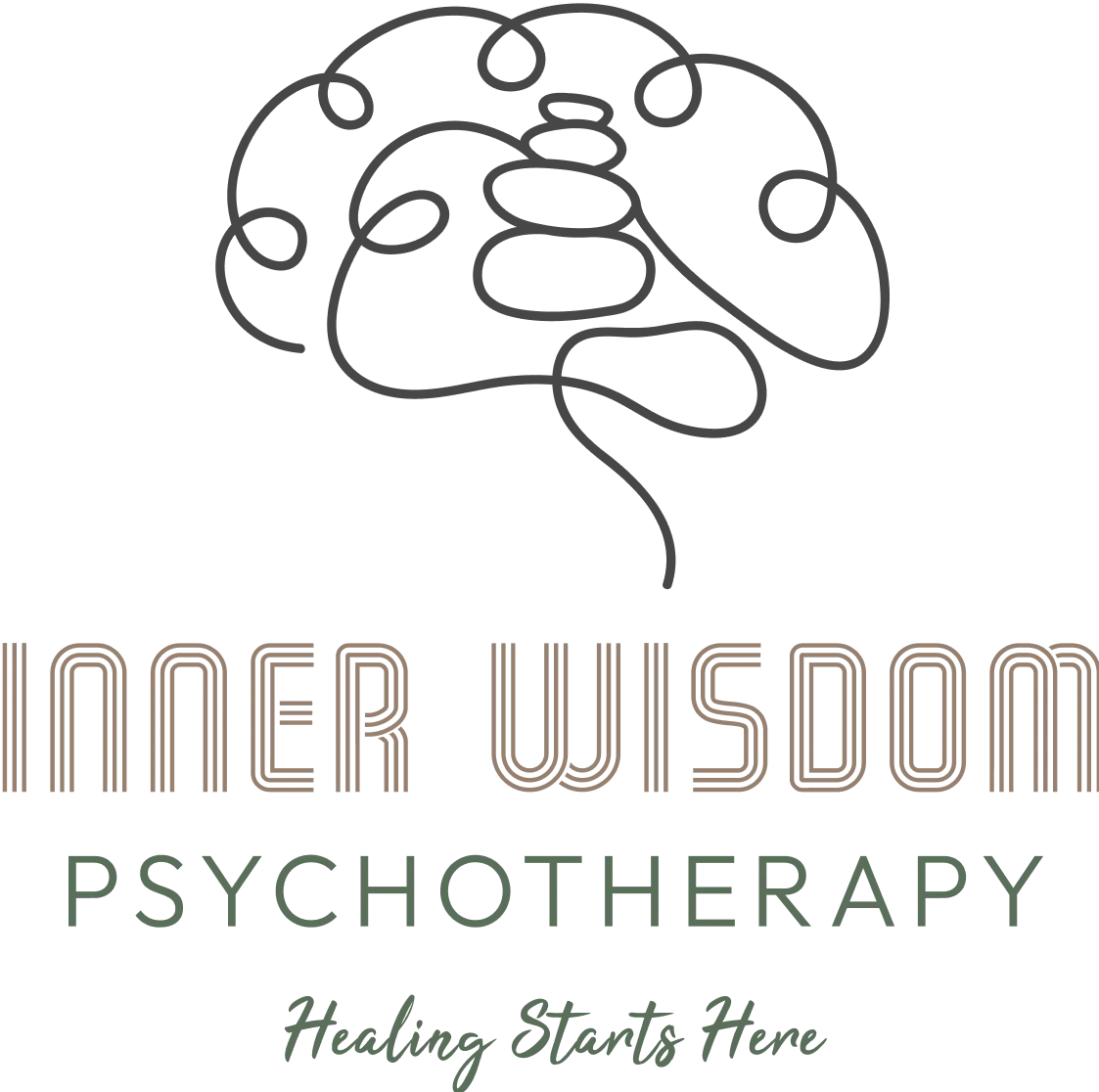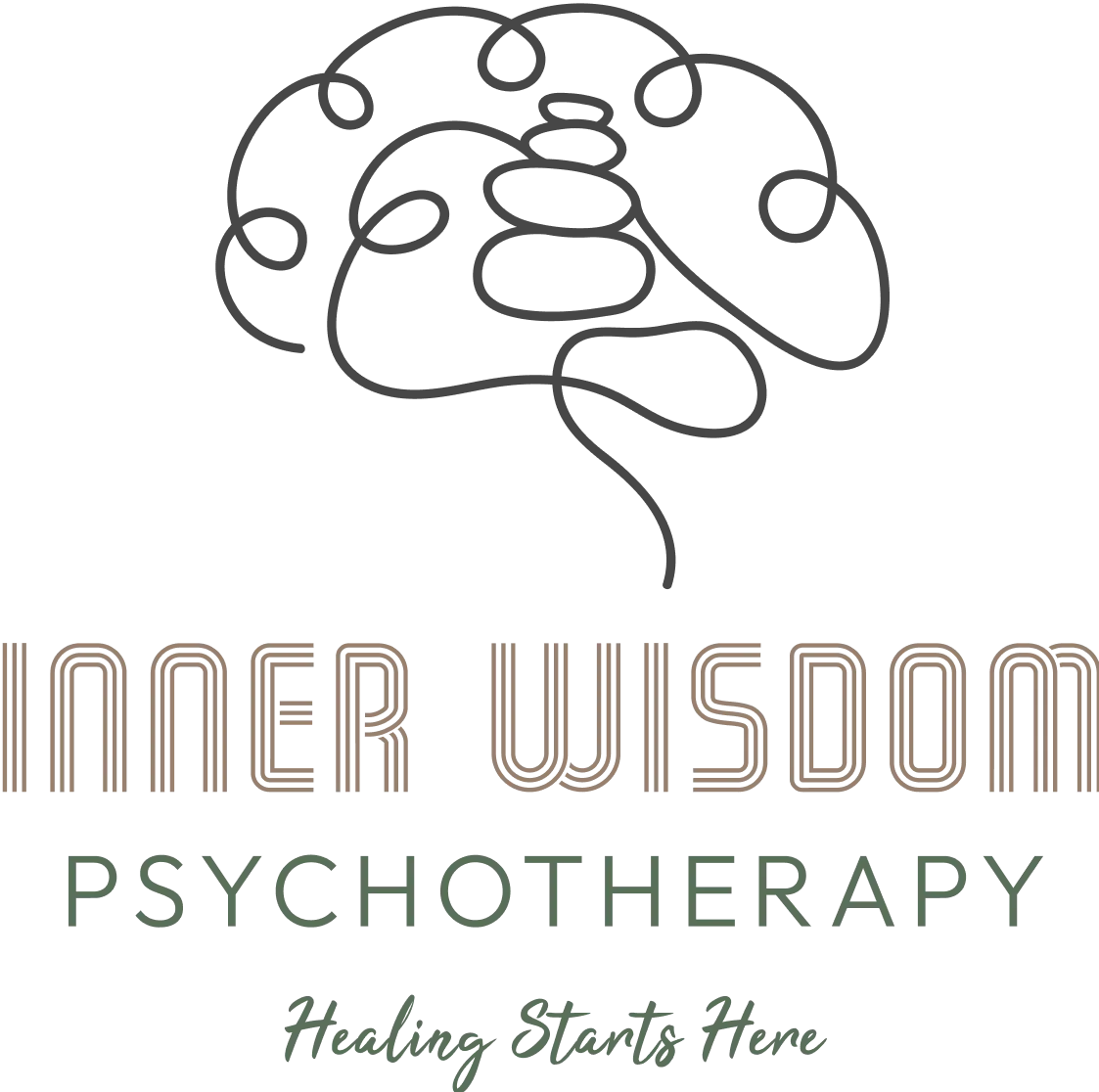
Discover Individual Psychotherapy Techniques for Anxiety Relief
Individual Psychotherapy Techniques for Anxiety: Effective Methods to Manage and Overcome Anxiety
In my practice as a psychotherapist, with decades of clinical experience, I’ve witnessed how anxiety can quietly erode one’s sense of self, disrupt routines and create a profound feeling of disconnection. Anxiety is more than just nervousness—it can interfere with our thoughts and feelings, disrupt sleep, create extra stress in the workplace, impact our relationships and create difficulty in managing daily responsibilities. Many adults in Ontario often feel overwhelmed, isolated and exhausted as anxiety chips away at their confidence and emotional well-being.
At Inner Wisdom Psychotherapy, we believe in the power of compassionate, expert-led therapy to help individuals understand their anxiety and reclaim a sense of calm and control. Each therapy session is uniquely tailored to your lived experience and emotional needs. Whether you’re navigating trauma, perfectionism or ongoing stress, there are evidence-based techniques that can support your healing.
In this article, I’ll share some of the most effective individual psychotherapy approaches I’ve used with clients—including those within the 2SLGBTQ community—and offer insight into how you can find the right support. We’ll explore common symptoms, why early intervention matters, and how to select a method that fits your unique path. For more about our values and experience, please visit our About page. You can also review the full list of services or contact us to take the first step toward your healing journey.
Understanding Anxiety and Its Impact on Daily Life
Anxiety appears in many forms. Recognizing its signs is essential to prevent it from overwhelming daily life. Common symptoms include restlessness, rapid heartbeat, excessive worry and difficulty concentrating. Physically, individuals may experience tension, headaches, and fatigue, while emotionally they may feel dread, irritability and low motivation. Untreated, anxiety can intensify and lead to other health issues such as digestive problems and insomnia. Early support is critical to change negative internal self-talk and avoid isolation and persistent struggle.
Common symptoms of Anxiety Disorders
Symptoms include uncontrollable worry, restlessness and a constant sense of being on edge. Clients often report physical sensations like a racing heart or sweating, even when there is no obvious danger. These symptoms can occur in episodes or be a continuous background of stress, disrupting daily activities and social interactions. Their persistence may lead to isolation and lower self-esteem.
The Emotional and Physical toll of Chronic Anxiety
Chronic anxiety takes a heavy toll both emotionally and physically. Clients often feel hopeless and overwhelmed while facing issues such as high blood pressure or gastrointestinal troubles. Persistent anxiety may result in fatigue and increased sensitivity to pain. This dual burden compromises clear thinking and overall vitality.
Why untreated Anxiety can become Overwhelming
Without proper intervention, anxiety can intensify and last longer. Individuals may end up trapped in a cycle of worry that escalates into conditions like depression or substance misuse as self-medication. The slow buildup of symptoms makes everyday challenges feel insurmountable, leaving clients frustrated and unable to access effective coping strategies.
The importance of Early Support and Intervention
Early intervention is crucial to prevent the long-term impacts anxiety can create on our life. Addressing anxiety promptly not only reduces symptom severity but also equips individuals with the skills to manage stress effectively. Seeking help when anxiety first appears can lead to smoother recovery and a stronger foundation for long-term stability.
What Is Individual Psychotherapy for Anxiety?
Individual psychotherapy is a personalized treatment approach that addresses the unique ways anxiety affects each person. Unlike general counselling, this method explores the root causes of anxiety in depth. During one-on-one sessions, we identify internal and external triggers and develop a tailored treatment plan based on your history, lifestyle and therapeutic goals resulting in a focused and measurable intervention.
How Psychotherapy differs from general Counselling
Psychotherapy goes beyond a supportive conversation by exploring the deep emotions and thought patterns that trigger anxiety. It employs structured techniques like Cognitive Behavioral Therapy (CBT) and Exposure Therapy that target underlying issues. This focused approach ensures that therapy is customized to your specific situation, unlike general counselling, which may address only surface-level stressors.
The Role of a Licensed Psychotherapist in Managing Anxiety
A licensed psychotherapist provides a safe and non-judgmental space for you to explore complex feelings. With clinical training and experience, the therapist develops individualized strategies that combine proven practices with empathetic support. This approach not only treats symptoms but also addresses root causes such as past trauma or chronic stress, facilitating lasting change.
How Individualized Treatment plans are Created
Treatment plans begin with a thorough assessment of your personal history, current challenges and specific anxiety triggers. Together, we identify strategies—whether through CBT, IFS Parts work or mind-body techniques—and set realistic, step-by-step goals. Regular reviews ensure that the plan evolves with your needs, keeping your recovery focused and effective.
Virtual Therapy options across Ontario
Virtual therapy provides high-quality mental health care for individuals unable to attend in-person sessions. Whether you are in London, Kitchener, Cambridge or elsewhere in Ontario, virtual sessions through Inner Wisdom Psychotherapy maintain the same warmth, empathy and clinical expertise. This option is especially valuable for clients juggling busy schedules or clients wanting discreet and accessible support.
Evidence-Based Psychotherapy Techniques for Anxiety
Effective anxiety management relies on evidence-based techniques that have been proven in clinical settings. These include Cognitive Behavioral Therapy (CBT), Exposure Therapy, Acceptance and Commitment Therapy (ACT) and Dialectical Behavior Therapy (DBT). Each method targets different aspects of anxiety, allowing for a comprehensive and personalized treatment plan focused on both short- and long-term recovery.
Cognitive Behavioral Therapy (CBT)
CBT is a highly effective method that focuses on identifying and challenging unhelpful thinking patterns that increase anxiety. By restructuring these thoughts, you can develop more helpful and balanced thinking patterns. This action-oriented approach provides practical tools for dealing with negative thoughts and has been shown to significantly reduce anxiety symptoms over time.
Exposure Therapy and Desensitization
Exposure therapy gradually introduces you to anxiety-triggering situations in a controlled setting with your therapist. This systematic approach helps reduce the intensity of your fear responses and diminishes avoidance behaviors. Tailored to your individual triggers, exposure therapy has been observed to bring noticeable improvements within a relatively short number of sessions.
Acceptance and Commitment Therapy (ACT)
ACT encourages you to accept anxious feelings instead of fighting them. Through mindfulness practices and value-based actions, ACT helps reduce the struggle against anxiety. This process increases psychological flexibility, allowing you to live in alignment with your values despite the presence of anxious thoughts.
Inner Family Systems (IFS) Parts Work for Anxiety Relief
IFS Parts Work helps treat anxiety by gently exploring the inner parts of you that feel overwhelmed, worried or afraid. Instead of pushing anxiety away, IFS gets curious about why anxiety is there - often revealing protective roles these anxious parts are playing. Through guided self-connection and compassion, IFS Parts Work helps you build a trusting relationship with anxiety, easing its burden, and allowing your calm and confident Self to lead. The result: less inner chaos and more inner clarity and peace.
Mind-Body Techniques to Support Anxiety Recovery
Mind-body techniques complement traditional therapy by addressing the physiological aspects of anxiety. Practices such as mindfulness, breathing exercises and journaling help calm the nervous system and alleviate anxiety symptoms. Integrated with evidence-based psychotherapy, these techniques foster holistic healing.
Incorporating Mindfulness and Breathing Exercises
Mindfulness involves focusing on the present moment and accepting feelings without judgment. Techniques like diaphragmatic breathing or the 4-7-8 method can lower heart rate and induce calm. Daily mindfulness practices enhance self-awareness and emotional regulation, providing a simple yet effective tool to manage anxiety.
Somatic-based techniques and Grounding
Somatic techniques reconnect you with your body. Grounding exercises, such as progressive muscle relaxation and sensory focusing, help shift your focus away from anxious thoughts. These practices reduce tension and can be used anywhere to quickly manage acute anxiety symptoms.
Using Journaling and Expressive Writing in therapy
Journaling allows you to process and externalize your thoughts and emotions. This practice helps track progress, recognize patterns and release pent-up feelings. Over time, regular writing can strengthen resilience and support long-term emotional well-being.
Building routines to Calm the Nervous System
Establishing daily routines that include relaxation techniques is key to managing anxiety. Regular sleep patterns, scheduled breaks for deep breathing and consistent physical activity all contribute to lowering stress. Personalized routines provide a stable framework that helps buffer against anxiety.
How to Know Which Therapy Technique Is Right for You
Selecting the right therapy technique is a personal process that depends on the intensity of your anxiety, its causes and your treatment history. Through careful collaboration, we identify your specific goals and preferences. Over time, as your needs evolve, the therapeutic approach can be adjusted to remain aligned with your long-term objectives.
Collaborating with your Therapist to Identify Goals
Effective therapy starts with clear and realistic objectives. By sharing your experiences and aspirations, we can set specific goals—be it reducing panic attacks, improving sleep or boosting confidence. This collaborative process creates tangible benchmarks that guide and motivate your progress.
Adapting techniques based on your Personal Needs
Each client is unique, so therapy must remain flexible. If initial methods like CBT prove helpful but deeper issues emerge, integrating IFS Parts Work or ACT may be necessary. Regular feedback allows us to fine-tune your treatment plan so that it remains responsive and effective.
Reviewing Progress and Shifting Approaches
Regular reviews ensure that the current strategy is producing positive change. By discussing improvements and challenges in our sessions, we can adjust techniques as needed. This dynamic, evolving approach helps maintain momentum and supports continuous recovery.
The Benefits of long-term Therapeutic Support
Long-term therapy reinforces new coping strategies and deepens self-understanding. Regular sessions can help prevent relapse by addressing stress before it escalates. A sustained therapeutic relationship provides a secure environment where you can grow, adapt and thrive.
Accessing Anxiety Therapy across Ontario
Accessing quality anxiety therapy in Ontario is now easier than ever. Whether you live in London, Kitchener, Cambridge, or another city in Ontario, you can receive compassionate, tailored care. Inner Wisdom Psychotherapy offers virtual sessions ensuring that professional support is always within reach.
Why Local Support in Matters
Local support offers the advantage of face-to-face connections and familiarity with regional challenges such as urban stress. Working with local therapists can also open opportunities for group sessions and community workshops, creating a support network that extends beyond individual therapy.
Virtual therapy options for Ontario Residents
Virtual therapy has revolutionized mental health care across Ontario. It provides convenience and flexibility, allowing you to receive reliable support regardless of your location or busy schedule. Inner Wisdom Psychotherapy’s online services mirror the warmth and effectiveness of in-person sessions, ensuring ongoing progress in managing anxiety.
Booking individual therapy at Inner Wisdom Psychotherapy
Booking therapy with Inner Wisdom Psychotherapy is a straightforward process that begins with the initial consultation session. You will receive a welcoming and supportive experience right from the first contact.Together, we discuss your therapy goals, needs and start to envision your path to healing. At the end of the consultation session, we book your first therapy session within a week’s timeframe to ensure no delay to receiving support.
What to expect during your First Session
Your first session is designed to be welcoming and non-judgmental. It includes a comprehensive intake to review your anxiety history, current challenges and healing goals for anxiety. This session establishes trust and outlines the evidence-based methods that will support your recovery, setting the stage for a collaborative therapeutic journey.
Frequently Asked Questions
1. What therapy technique works best for anxiety?
At Inner Wisdom Psychotherapy, we often find that a combination of Cognitive Behavioral Therapy (CBT), IFS Parts Work and mindfulness-based practices works effectively for clients experiencing generalized anxiety. IFS allows us to befriend our anxiety to understand it better, CBT helps identify and shift unhelpful thinking patterns and mindfulness builds the ability to stay grounded in the present moment. Combined, they create a strong foundation for long-term anxiety management.
2. Can therapy be helpful even if my anxiety isn’t trauma-related?
Yes. While certain therapeutic approaches are developed to co-treat trauma, they can be adapted to support individuals whose anxiety stems from persistent stress, negative self-beliefs and overwhelming thoughts. Therapy can help you reprocess your experiences so they no longer trigger a heightened emotional response—even if they aren’t linked to a specific traumatic event.
3. How many therapy sessions does it usually take to see progress?
Everyone’s healing journey is unique. Some clients begin noticing positive shifts within 6-10 sessions, while others benefit from longer-term support. At Inner Wisdom Psychotherapy, we work collaboratively to set realistic goals, monitor progress and adapt your treatment plan based on what works best for you.
4. Is virtual therapy effective for treating anxiety?
Absolutely. Our virtual sessions offer the same depth, safety and personalization as in-person therapy. Many of our clients across Ontario—including those in London, Kitchener, and Cambridge—appreciate the convenience and flexibility of online care, and studies show it can be just as effective in reducing anxiety symptoms.
5. What’s the difference between CBT and ACT for anxiety?
Cognitive Behavioral Therapy (CBT) focuses on identifying and reshaping unhelpful thoughts, while Acceptance and Commitment Therapy (ACT) encourages you to accept difficult emotions and take meaningful action aligned with your values. Both approaches are supported by research and may be integrated depending on your personal goals and needs.
6. Can I use medication alongside therapy for anxiety?
Yes. Many clients benefit from combining psychotherapy with medication, especially when symptoms feel overwhelming. Therapy offers long-term skills and insight, while medication can help stabilize mood or reduce intensity. We’re happy to coordinate care with your family doctor or psychiatrist to ensure a holistic and supportive approach.
7. How do I find the right anxiety therapist in Ontario?
Finding the right therapist starts with choosing someone who aligns with your values, goals, and communication style. At Inner Wisdom Psychotherapy, we offer a compassionate, client-centered approach grounded in evidence-based methods. We invite you to explore our services, read more about our practice, or reach out for a complimentary consultation to see if we’re the right fit for you.
Final Thoughts
At Inner Wisdom Psychotherapy, we believe that anxiety is not something you simply have to live with—it’s something you can understand, manage, and grow through. With individualized treatment plans grounded in evidence-based techniques and mind-body strategies, we’re here to support you every step of the way. Our virtual therapy sessions offer accessible, compassionate care tailored to your unique needs. We work with adults across cities in Ontario including Woodstock, Guelph, Stratford, Ingersoll, Brantford, St. Thomas, Thamesville, Cambridge, Kitchener and Waterloo.
Lasting change is possible when therapy becomes a trusted space for self-discovery and resilience-building. If you're ready to take the next step toward calm and clarity, reach out today to book a complimentary consultation. You can also call us at (548) 290-7677 or email [email protected] to begin your journey toward healing.





